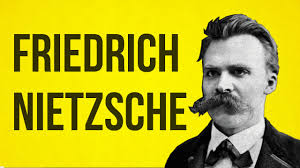
In honor of National teacher’s day (which is when this article was written), I thought it fitting to post a piece covering not just some of the philosophy of McKendree’s favorite philosophy professor, but a bit of humanization for my favorite professor.
Kevin Zanelotti grew up in Baltimore, Maryland. He attended Archbishop Curly High School, a catholic high school in the center of Baltimore. This school however was a far shot from where Zanelotti would travel and eventually land. However, it was a necessary and one might even say an essential stepping stone. The priests at this high school were Franciscan and thus more accepting/aware of belief systems outside of their own. And it was one of these priests that gave a young Zanelotti his first look into the lens we are viewing this article through today: Friedrich Nietzsche, or more specifically Thus Spoke Zarathustra by Friedrich Nietzsche.

Dr. Zanelotti as he can be seen today around campus
For the hesitant among you, please have no worries. Having read this text is not necessary to understand the article. However, I would highly recommend it to anyone interested in philosophy or anyone who is struck by any segment of this article, be that in a good way or a bad way.
One of Nietzsche’s most famous quotes is “Without music, life would be a mistake.” This quote while perhaps not directly inspiring Zanelotti’s life is certainly reflected by it. Anyone who has taken a class with Zanelotti is likely well aware of his love for music. Be it through all of his band shirts that he wears to class or the references he makes to music in his explanations of philosophic concepts. What some may not know however is that throughout his high school career Zanelotti was a part of many bands. And after finishing high school he moved to the west coast to play professionally. While he never did strike it big, Zanelotti says he doesn’t regret those six or so years spent as a struggling artist. In fact, this willingness to set out on an unproven, or even untouched, path is essential to both Nietzsche and Zanelotti’s philosophy.
One crucial thing emphasized by both thinkers is the necessity to exist and to think for oneself. One of Nietzsche’s other famous quotes (of which there are hundreds) in relation to this topic from Zarathustra is: “You must be ready to burn yourself in your own flame; how could you become new if you had not first become ashes.” Zanelotti talks of his early years proudly, and this he believes is how everyone should act towards the potential to do new and challenging things; the belief of not “phoning in” life is crucial. Another of Nietzsche’s quotes which has been bastardized by western society is: “That which does not kill us, makes us stronger”
This brings us to our next relation between the two: the smashing of idols. One of Nietzsche’s most famous works is called Twilight of the Idols, or Philosophizing with a hammer. The main idea of this collection of aphorisms by Nietzsche is to first make people recognize the idols, or in other words basic belief systems, they have drawn into themselves or recognize as true in society and then take a hammer to them to see what lies inside. Nietzsche would make the claim that these world theories are often hollow and that through the mass acceptance of these idols as true we are selling our abilities as human beings short. In Zarathustra Nietzsche states that “Of all that is written I love only what a person has written with his blood.” What terrifies our two thinkers is that through the acceptance of all of these idols people begin to take life too seriously and lose the nerve to write, or even exist, with the burning passion that rages inside of all of us. The suppression of these passions is the suppression of humanities ability to make amazing things. The way to escape these idols is to, as stated earlier, take a hammer to them and stare existence in the face. Question things, take risks, experience true existence which we so often tend to hide behind our individual idols.
When asked what he would put on a billboard if he knew millions of people would see it Zanelotti said he would put the simple text: “Why do you give a damn what’s on this billboard?” and I think that this thought pattern, applied to our everyday life, is the hammer which Nietzsche referred to.